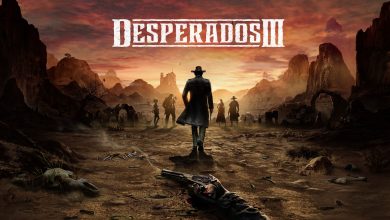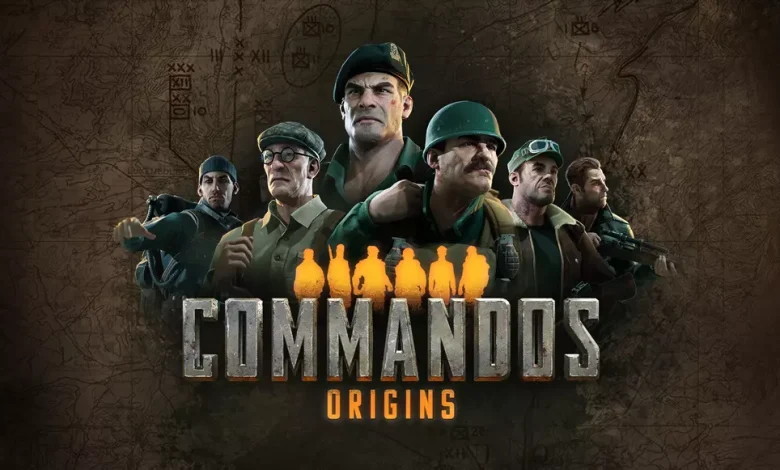
It is almost 80 years since 9 May 1945 when the unconditional surrender of Nazi Germany was enforced. The anniversary of the Antifascist Victory, or later Europe Day, towards a deliberate revision of history. History from which the lessons are many, and unfortunately the parallels between how the geopolitical scene escalated to the belligerent conflict then and the current situation are tragically ironic. The loss of human lives was staggering whilst Europe tried for many years to clean up its literal and metaphorical wreckage, with many painful stories such as that of the Greek Civil War. However, through this global tragedy there were moments of inspiration, romanticisation of dire situations and heroism. This inspiration was pervasive in all works of human cognition, and naturally videogames were not absent from the dance.

Fast forward to the end of the 90s and videogame studios were characterized by intense creative activity taking advantage of the acquired speed of technological leaps in the field of computer science, in general. It is therefore no coincidence that pioneering releases such as Commandos, from Spain's Pyro Studios, defined entire genres in the industry. Commandos was something unprecedented, a much more cohesive strategy game, where what mattered was not resource management but solving puzzles as dictated by the enemy's intricate movement systems. Its subject matter was particularly novel and ripe for exploration: the Second World War was discussed in homes as a reminder of the generations who lived through it personally or its immediate aftermath of geopolitical events. I have occasionally mentioned my own first encounter with the real-time tactical strategy genre (or stealth strategy as it has recently come to be called), in my review of Shadow Tactics: Blades of the Shogun, the game by the now defunct Mimimi Games that literally revived the genre. The latter is evidenced by both Mimimi's hiring of THQ Nordic to develop the by all accounts excellent Desperados III, and Kalypso Media's purchase of Commandos IP and the release of the overly disappointing (in the signer's opinion) Commandos 2: HD Remaster.
And so we arrive at Commandos: Origins, which brings us back to the various theatres of Europe and Africa during World War II, delivering the origin stories of the original Commandos team (those seen in Behind Enemy Lines and Beyond the Call of Duty). And this is where my first serious objections begin. Putting on the borderline nostalgia goggles and the overcoat of once-impressed immature youth, I suspect that the first Commandos were possessed of a seriousness, even the second despite the occasional fleeting banter between our heroes. The Green Beret was a stoic no-nonsense guy who wanted to get the job done, despite his run-ins with the upper echelons of the military. Here he's presented as an insubordinate troop (who joined the Corps?), a complete loner whom no one understands and who doesn't want to work with anyone, a complete Americanized maverick who everyone tolerates because he's good at what he does. Of course in the progression of the plot this evolves with his necessary conversion, but he is by no means the natural, organic leader of the commandos as the canon has been up to this point.
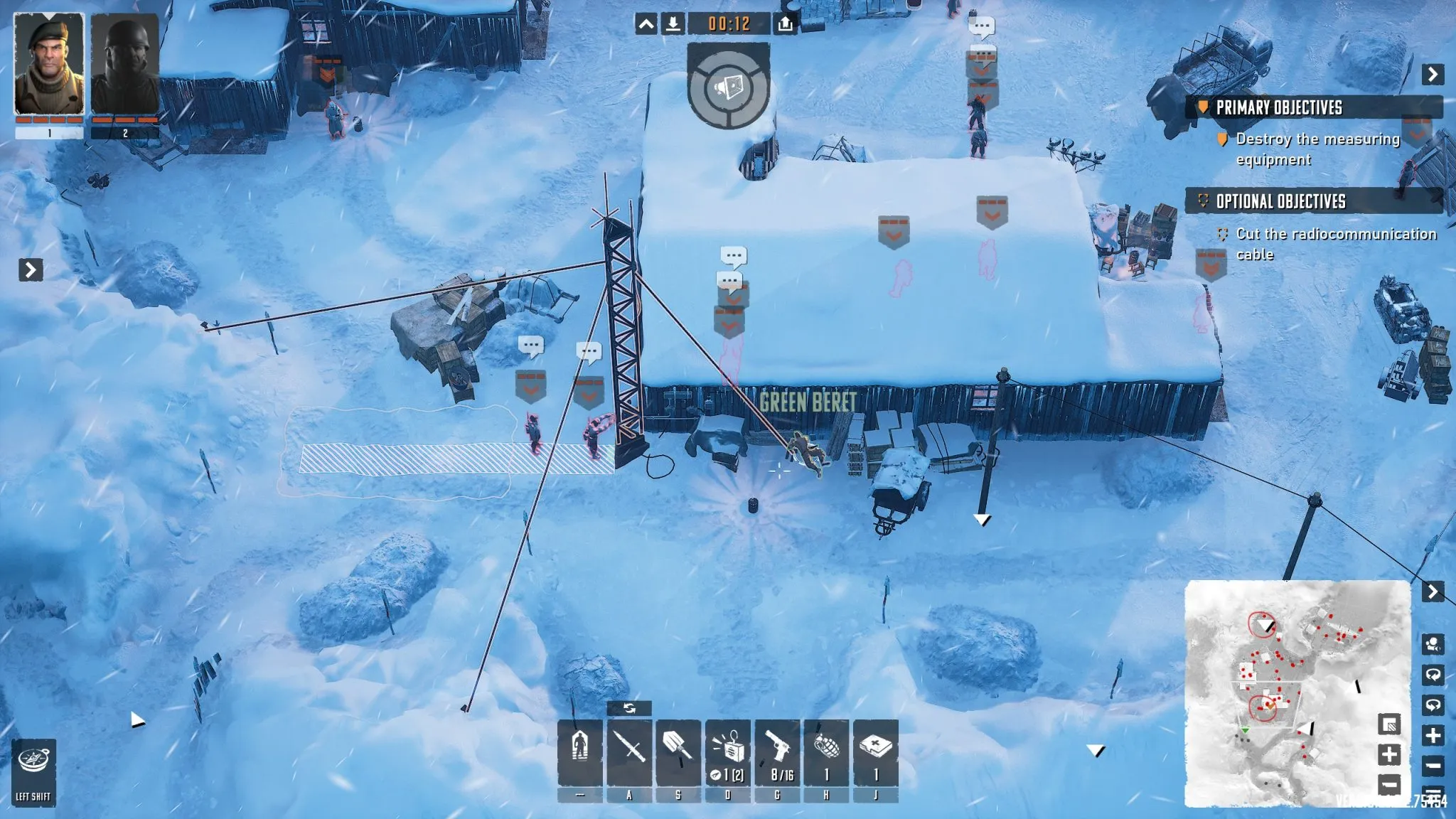
This role has fallen to Sapper, who on Sir Churchill's orders strives to assemble a group of tough soldiers who for different reasons have been rejected by the regular army. Thus we end up with the team that fans of the series know: the Green Beret, Sapper, Marine (Diver), Driver, and Spy. Their interaction at several points reveals some information about their past, without falling into the trap of clumsy exposition. However, the common denominator in all scenarios involving the Green Beret is their spirit of antagonism towards their fellow soldiers, which goes so far as to be implausible. At the very least, one would expect him to have some team spirit from his training. There are some historical missteps as well, e.g. the green beret was officially introduced in 1942 well after the first missions in Commandos: Origins. However, the game managed to secure approval from the German parliament and has not censored Nazi references, so there is the right historical frame of reference, a crucial component which wa s amiss in the Commandos 2: Remaster. My opinion is that the scenario, despite its coherence, has individual elements that alienated me from the whole experience more than the opposite intended effect. Suddenly my old ‘friends’ seemed more like caricatures than tough warriors.

I won't go into too much detail on the abilities of each commando since the series owns the blueprint and practically every commando is the archetype for every subsequent release in the genre. Every ability that was a trademark for the commandos makes its presence felt here (e.g. radio decoy - Green Beret, mines - Sapper, Tommygun - Driver). The difference is that where some abilities had limited uses and required at least a little inventory management, there are now consumables scattered across the map. The upshot is that certain abilities become extremely powerful with some commandos being able to clear entire sections of the map with relative ease. For example, combining the Diver with the Spy is particularly deadly, as the former has his daggers, the fishing rifle while the latter has endless uses for his infamous syringe. More specifically, with the Diver I necessarily managed to clear the entire endpoint of a mission due to a gamebreaking bug that prevented me from using the rest of the team, as they couldn't execute any commands.

This existence of the bugs was already known from the first day one reviews, and I was hoping that a delay would give the necessary time to fix the problems. Alas, although there have been patches with significant steps forward, I was forced to quit the game on the ninth of fourteen, total, missions due to this very gamebreaking bug. The hope is that they could patch the issue along with many others that end up degrading the experience too much. For example, in the same mission, which is modular in two parts, we have to blow up three targets during the first, night part of the mission. However, upon succeeding in blowing up the first target, dialogue is triggered that looks like we've accomplished all three (persistent for all three target actually). Admittedly, it's a minor bug, but it breaks even that minimal immersion one can get from a strategy game, nonetheless.
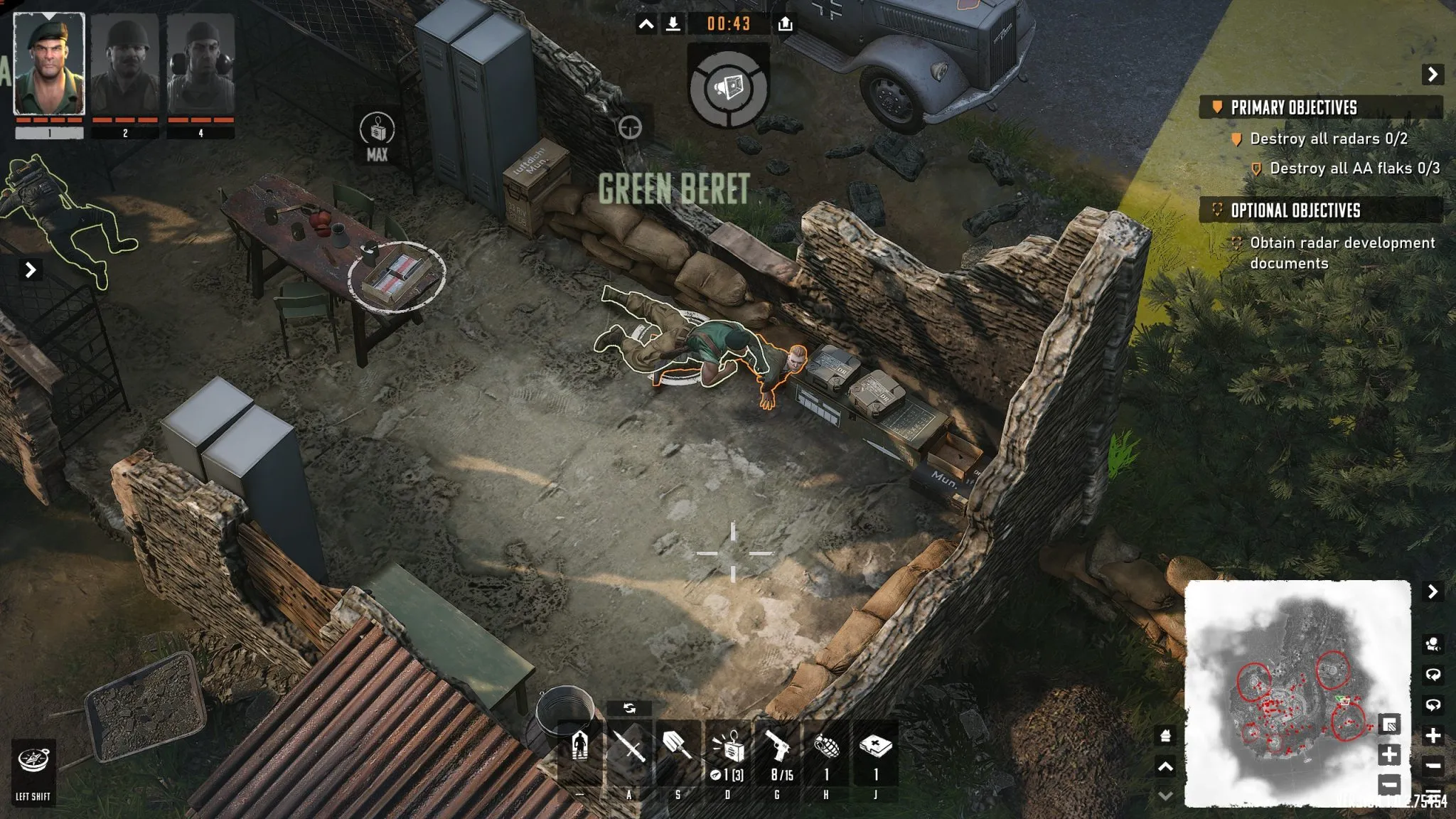
The immersion is further spoiled by basic/essential gameplay problems, which were pretty much solved since the beginning of the series and Mimimi improved to the fullest extent with modern means. Playing on the Veteran difficulty level (theoretically the hardest of the three) there were very few times when I found myself in a quagmire, instead there were spots I got through with a single commando with no hindrances. Assessing the situation, I'm inclined to think that it's not a matter of poor design over enemy interaction in the mission, but other aspects that cumulatively contribute to the game ending up being easy. Very typically, from the first moment a baked veteran of the genre will realize that all the commandos have exactly the same speed... It doesn't matter if it's the green beret or the sapper, they run exactly the same; believe me I had them sprint across the map to verify it because the latter seemed too fast. Therefore, a decisive factor in how and with whom to approach a situation has been eliminated. The gameplay seems certain chaotic due to UI especially in how enclosed spaces are depicted, with visibility issues. There is an option to be able to remove the roofs from the houses so we can see what's going on inside, but this is not permanent. Should we choose another commando, the option resets even if we revert to the previous team member. Overall, lots of these "small" and "dumb" gameplay quirks that have been solved even in less accepted titles in recent memory.
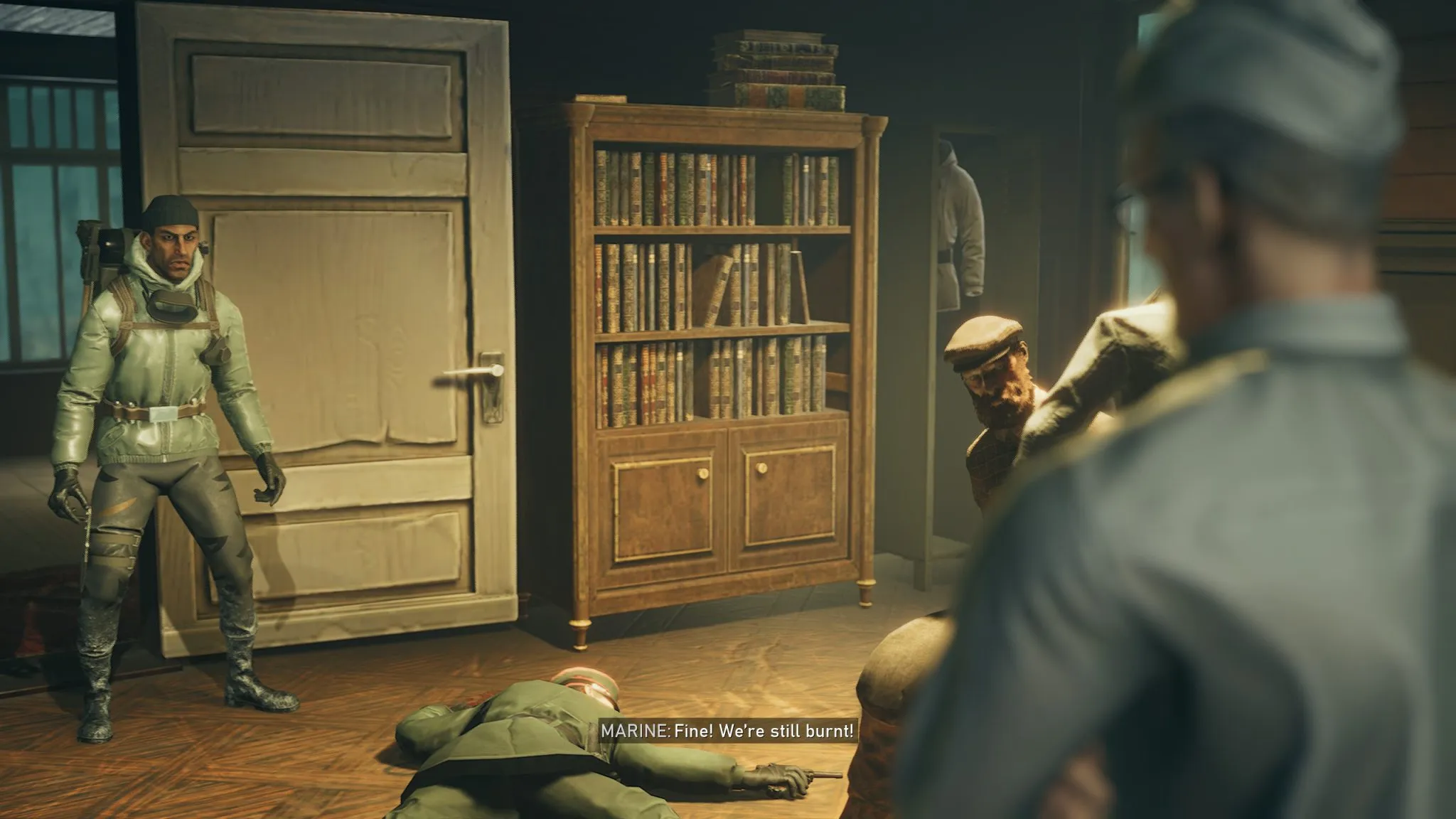
Is Commandos: Origins a mediocre effort after all? Certainly not. Its missions are spread across large maps with usually an extra one with two additional objectives beyond the main one for the more thorough players. There's good system consistency, despite oversights in key issues, and the length is sufficiently enjoyable (~20-30 hours depending on the approach). But it still suffers noticeably from a number of mistakes that could put it back in the spotlight as ‘the king who came to drive out the usurpers’. I'd wait a while until the issues that plague it are corrected, and hope that the sequel (if there is one) can compete on equal footing with the spiritual children of the series that Mimimi delivered to us.
RANKING - 85%
85%
Mistakes on established systems and minor oversights significantly reduce the experience of a decent effort.
